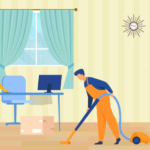As temperatures drop, a reliable heating system becomes essential for keeping your home warm and comfortable. Unfortunately, heating systems often show signs of wear just when you need them most. Proactively addressing potential issues before winter sets in can save you from discomfort, unexpected expenses, and energy inefficiencies.
This guide covers everything you need to know about heating repair, from recognizing the signs of trouble to understanding the benefits of professional assistance. With support from HVAC experts like PMG Mechanical, you can ensure your heating system is winter-ready and operating at peak performance.
The Importance of Pre-Winter Heating Repair
Heating systems are often overlooked during the warmer months, leading to neglected maintenance and undetected issues. Preparing your system for winter is crucial for maintaining comfort and safety.
Benefits of Pre-Winter Repairs
- Avoid Emergency Breakdowns: Addressing minor problems early prevents major failures during freezing conditions.
- Save on Energy Bills: A well-maintained system operates more efficiently, reducing energy consumption.
- Prolong System Lifespan: Timely repairs minimize wear and tear, extending the life of your heating unit.
Signs Your Heating System Needs Repair
Recognizing early warning signs of a malfunctioning heating system can help you address problems before they escalate.
1. Insufficient Heat
If your heating system fails to maintain a consistent temperature, it may signal issues with the thermostat, burner, or airflow.
- Potential Fix: Calibrate the thermostat, clean the burner, or inspect ductwork for obstructions.
2. Unusual Noises
Strange sounds such as banging, rattling, or hissing indicate problems with internal components.
- Potential Causes: Loose parts, air leaks, or failing motors.
- Action Needed: Schedule an inspection to identify and repair the source.
3. Frequent Cycling
Heating systems that turn on and off repeatedly may have clogged filters, airflow restrictions, or thermostat issues.
- Solution: Replace filters, clean ducts, or recalibrate the thermostat.
4. Rising Energy Bills
A sudden increase in energy costs often points to an inefficient heating system struggling to perform.
- Likely Culprits: Dirty components, aging parts, or system leaks.
- Solution: Have a professional HVAC contractor assess and optimize your system.
Common Heating System Problems and Solutions
Heating systems are complex, and various issues can impact their performance. Here are some of the most common problems and how they’re addressed.
1. Dirty or Clogged Filters
Blocked filters restrict airflow, reducing efficiency and forcing the system to work harder.
- Solution: Replace filters every 1–3 months to maintain optimal airflow and indoor air quality.
2. Pilot Light or Ignition Problems
A malfunctioning pilot light or ignition system can prevent your furnace from producing heat.
- Cause: Faulty sensors or gas supply issues.
- Solution: Clean or replace sensors, and check the gas line for obstructions.
3. Blower Motor Issues
A failing blower motor results in weak airflow, compromising the system’s ability to distribute heat.
- Solution: Repair or replace the motor to restore proper airflow.
4. Heat Pump Malfunctions
Heat pumps may struggle to operate in extreme cold without proper maintenance.
- Solution: Inspect for refrigerant leaks, clean the outdoor unit, and ensure defrost cycles are functioning.
DIY Maintenance Tips
While professional repairs are often necessary, homeowners can take several steps to maintain their heating systems and prevent minor issues.
1. Check and Replace Filters
Clogged filters are a common cause of heating inefficiencies. Inspect your filters monthly and replace them as needed.
2. Inspect Vents and Ducts
Ensure that vents and registers are unobstructed to allow proper airflow. Periodically clean ducts to remove dust and debris.
3. Test Your Thermostat
Calibrate your thermostat to ensure accurate temperature settings. Consider upgrading to a programmable thermostat for greater control.
4. Clean Around the Furnace
Keep the area around your furnace free of clutter and debris to prevent fire hazards and ensure adequate ventilation.
The Role of Professional Heating Repair Services
While DIY maintenance helps with minor issues, professional services are essential for complex repairs and system optimization.
Why Hire an HVAC Contractor?
- Expert Diagnosis: Professionals can accurately identify the root cause of problems.
- Proper Tools and Techniques: Trained technicians have access to specialized tools and knowledge.
- Safety Assurance: Handling gas lines, electrical components, and complex systems requires expertise.
PMG Mechanical provides comprehensive heating repair services to ensure your system runs efficiently and safely throughout the winter.
Preparing for Heating System Replacement
If your heating system is old or beyond repair, replacing it may be the best option. Here’s how to determine when it’s time to upgrade.
When to Consider Replacement
- Age of the System: Most systems last 10–15 years; older units are less efficient and more prone to breakdowns.
- Frequent Repairs: Repeated issues can outweigh the cost of a new system.
- Inconsistent Heating: Uneven temperatures throughout your home suggest the system can no longer meet your needs.
Benefits of a New System
- Energy Efficiency: Modern systems consume less energy, reducing utility bills.
- Enhanced Comfort: Advanced features provide consistent heating and improved air quality.
- Incentives and Rebates: Many programs offer financial incentives for upgrading to energy-efficient models.
Staying Warm During Repairs
If your heating system requires extensive repairs, there are ways to stay comfortable in the meantime.
Temporary Heating Solutions
- Portable Heaters: Use electric space heaters to warm specific rooms.
- Insulation: Seal windows and doors to retain heat.
- Layering: Dress in warm clothing and use blankets to stay comfortable.
Environmental Benefits of Heating Repairs
Addressing inefficiencies in your heating system isn’t just good for your home—it also benefits the environment.
Reduced Energy Consumption
- Lower Emissions: Efficient systems use less energy, reducing your carbon footprint.
- Cleaner Fuel Use: Modern systems often utilize environmentally friendly fuels and technologies.
Support for Renewable Energy
Upgraded heating systems can integrate with renewable energy sources, such as solar panels, for sustainable operation.
Conclusion: Be Winter-Ready with Reliable Heating Repairs
A well-maintained heating system is essential for comfort, efficiency, and peace of mind during the colder months. By recognizing signs of trouble early and addressing them with professional repairs, you can avoid costly breakdowns and enjoy consistent warmth all winter long.
Whether you need minor fixes or a complete system replacement, trusted providers like PMG Mechanical are ready to help. Don’t wait for freezing temperatures to discover a problem—take proactive steps today to ensure your heating system is up to the challenge.






